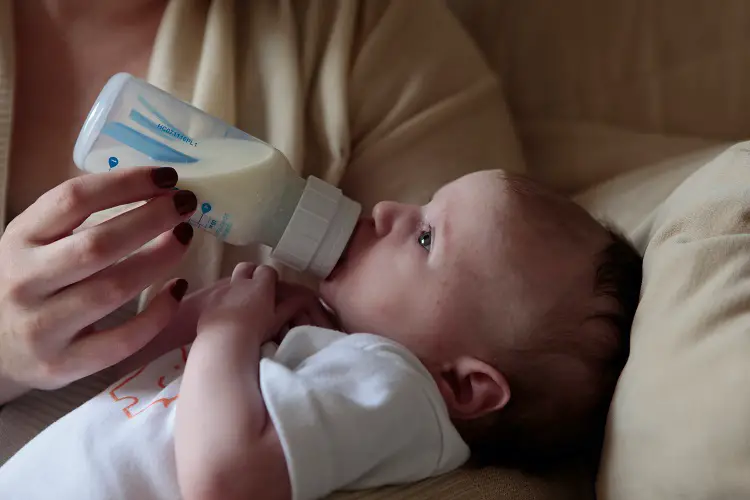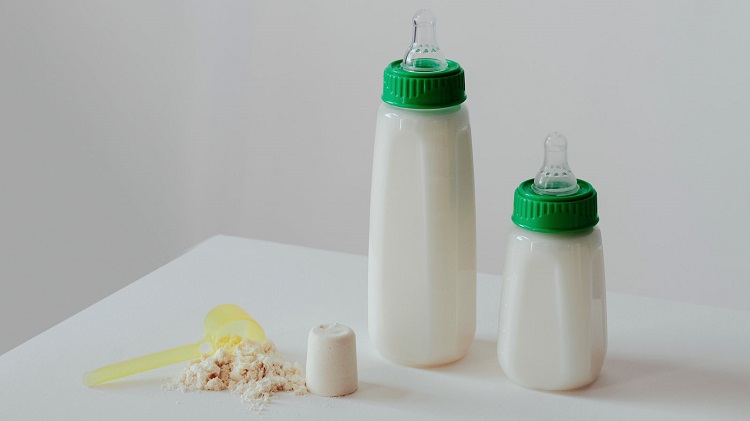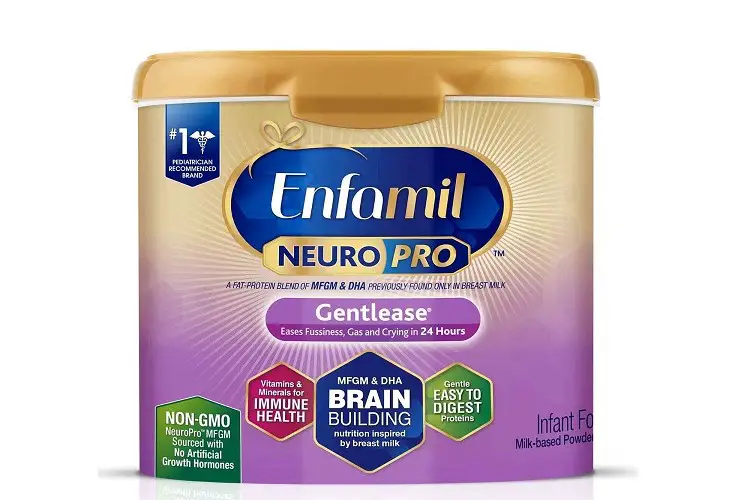Gone are the days where the absence of breast milk could hinder the proper nourishment of a baby. Some mothers are unable to breastfeed due to constraints like health complications and a myriad of others.
But this is no cause for alarm because the baby formula has come to the rescue. They can provide as many nutrients as your baby needs.
In this article, we answer your question of how long does a box of formula lasts along with other formula feeding-related questions.
Advantages of Baby Formula
Baby formula has a lot of benefits that your child’s body and overall health would be grateful for. Below are some advantages of baby formula.
- It is Flexible: Baby formula doesn’t require rules or specific guidelines. You can always feed your baby when you want and how you want. Tell me, what’s more beautiful than that?
- It is Supplemental: It has extra calories and nutrients that are needed for your baby’s growth. It can supplement breast milk if your baby isn’t getting enough from you. It can also help boost your baby’s blood sugar, solve jaundice issues and help with dehydration.
How Long Does A Box Of Formula Last?
When you get a box of formula, you would naturally expect it to stay for some time and when it doesn’t stay for the estimated period, it is annoying.
There are so many factors that would affect our answer to this question, and each would be discussed below;
1. Size and Volume of Box/Can
This is usually the first and most obvious factor in determining how long does a box of formula can last. Larger formula cans last longer than smaller ones. And they may cost less than the smaller cans ounce for ounce.
However, you must be cautious of the expiration dates and shelf-life when buying large containers of formula. Once a larger can of the formula is opened, the powder formula must be used within one month.
Liquid and ready-to-feed formulas should be in the refrigerator and fed within 48 hours. Any leftover formula should be thrown away after its shelf life or expiration date has passed.
2. Nature of Formula
It is normal to see that a liquid is more packed than a powder of whatever product. Powdered formulas are usually more affordable, and are less packaged than liquid, especially when they are placed in big sachets. This is so because if the liquid formula is slightly mishandled, all will be lost.
In this case, the liquid formula would last longer than the powdered one, with no particular difference in time, except when mishandled. This makes most parents go for the liquid formula.
3. The Time Factor
This has to do with the time the formula is being kept aside after being prepared.
Studies show that the powdered formula, after being prepared, can last for 2 hours before it is given to the child, while the liquid one can stay and even be refrigerated for at most 48 hours.
Pediatricians recommend finishing a bottle within an hour once it has been served, no matter the state from which it was prepared, because harmful bacteria can multiply in it, thus deteriorating the formula’s state and causing harm to babies later on, especially if this is being repeated over time.
4. Body Weight
Unlike your milk which usually changes in composition and volume to meet up with your baby’s nutritional needs, you will need to double up or lower the amount of formula you give your baby with each feed to ensure you offer them the right nutrition as they continue their growth and development.
Here’s a feeding sample chart for 0-12 months
Newborn: 1-2 ounces per feed, for every 8-12 times each day
1-2 Months: 2-4 ounces per feed, for every 6-8 times each day
2-4 Months: 5-6 ounces per feed, for every 5-6 times each day
4-6 Months: 6-8 ounces per feed, for every 4-6 times each day
6-9 Months: 7-8 ounces per feed, for every 3-4 times each day
9-12 Months: 7-8 ounces per feed, for every 3 times each day
The chart shows that the amount and frequency at which a baby feeds usually changes as they grow. Older babies will consume more formula at each feed and feed less frequently than younger babies.
5. Refrigeration
Indeed, whatever is refrigerated stays longer, maintaining its original form. Refrigeration can help to extend the shelf life of the box of formula when not opened, and when opened, as mentioned in the second point above, it can last 48 hours.
6. Heating
In the past, heating the leftovers of formula and allowing it to cool and then be given to the baby was a norm. It helps the formula last longer. Now, it is found that heating is very bad for the baby.
It can lead to scalding of the baby’s mouth and kill the formula’s useful substrate. Heating, though, is not entirely wrong, especially if it is a fresh one intended for a baby that likes warm milk.
Read Also: What To Do With Leftover Formula
How Long Does a Box of Formula Last: The Verdict
After going through these factors, you’d discover that there is no fixed time frame in which a formula box is designated to last as many things influence it. But on average, a box of formula lasts for two days.
Keep in mind as your child grows, the dietary requirement changes. Therefore the nature of the formula, whether liquid or powdered, will also play a huge factor in how long your supply of formula lasts.
You may notice that the same box of formula you just bought may not last you longer as the same box did the last time.
If you switch to breastfeeding while formula feeding or your baby begins eating solid food earlier, you will notice that you suddenly have an over-supply of formula.
Read Also: 13 Best Formulas That Taste Closest To Breast Milk
Pros And Cons of Formula Feeding

Pros
- You can share the feeding responsibility: As a mother, it isn’t easy to ensure your baby is well-fed all the time, even when you are busy with work. Formula feeding solves this issue as your partner can help you feed and even the babysitter. Plus, you don’t have to go through the stress of preparing it for whoever will be responsible for your baby’s feeding at a particular time.
- Comfort: By choosing formula feeding, there will be no discomfort that comes with breastfeeding, back pain for example, or breast milk leakage. Also, your schedule will be flexible; as you do not have to pump ahead of time or worry about sudden changes in your schedule.
- The formula gives you information on how much your baby is eating: This is so because its composition is fixed, unlike breast milk which varies in composition from time to time.
- Makes baby fuller: Formula takes a longer time to digest; because of this, your baby would be fuller for a longer period, meaning less feeding time.
Cons
- Baby Formula is expensive: This is unfortunate because your baby will likely need the formula for its first year, and if your baby has an allergy, the cost could go higher.
- You’d be judged: This was mentioned in the second introductory paragraph. And like we said, it shouldn’t bother you so long as your child is healthy and you are satisfied with your decision.
- Health: It is true what we said; a baby’s formula is identical to breast milk in terms of nutrients. But here is the drill. Breastfed babies are at a lower risk of developing infections and being hospitalized. This is so because, during breastfeeding, the mother’s antibodies are passed on to the baby to boost its immune system.
- Harder to digest: Formula is also harder for a baby to digest, causing gas to build up in the baby’s stomach and cause a stomach upset. Also, health-wise for the mother, it can reduce the risk of breast cancer, heart disease, and the like.
- Time sapping: When it comes to taking care of babies, hygiene is very important. For busy moms, you must make time to take good care of their baby, which is very important since the baby’s immune system is still developing. Also, so much time is spent preparing when you are about to leave your house.
Read Also:Enfamil vs Similac vs Nan Pro
Pro Tips For Using Baby Formula

As a formula-feeding mom, preparing, storing, and serving formula needs special care. You should keep these safety tips in mind to ensure your baby’s safety.
Read the Label
As a formula-feeding mom, the first thing you must do is study the formula label. You’ll find proper guidelines on storing, preparing and diluting the formula, along with tips for safely handling the product.
If you decide to use the powdered formula for your baby whose immune system is still developing, follow the CDC’s preparation guidelines.
Store in a Cool, Dry Place
Ensure all unopened formulas are kept in a cool, dry place with the lid sealed. The CDC advises parents not to store unopened formula in:
- Vehicles
- Garages
- Outdoors
Practice Safe Handling
When preparing formula for your baby, make sure you follow this safety guideline:
- Make sure you wash your hands and workspace before preparing bottles
- Make sure you wash baby feeding bottles in hot soapy water and do not forget to sterilize them using a microwave or plug-in steamer before use.
- Avoid using the microwave to warm baby formula. Doing this can result in uneven temperature in the baby bottle, which could burn your baby.
Prepare Formula Based on How Often Your Baby Feeds
Some parents may decide to mix bottles for the whole day; this could pose the risk of bacterial contamination. The best suggestion is to find safe middle ground.
It’s best advised to pre-measure formula and water and mix the two when right. If your baby feeds every 3-4 hours, you need approximately 6-8 bottles each day.
When in Doubt, Discard!
As a formula-feeding mom, you should always follow your instincts. Avoid being too economical trying to save a few dollars. Discard the formula, especially in doubt, and make a new batch with a neatly sanitized bottle.
Related Posts:
- How To Store Formula Milk For Night Feeds
- How To Thicken Baby Formula Without Cereals
- How To Tell if Powdered Formula is Bad
- What Happens If Baby Drinks Spoiled Formula Milk
- Best Formula For Picky Breastfed Babies
- Best Formula For Acid Reflux and Gas
Conclusion
Do you now see that the question, how long does a box of formula last, has no fixed answer? It is mostly dependent on you and your baby’s feeding pattern. We hope this article teaches you what you need to know about baby formula and its intricacies.
